A game designer's contribution to the climate solution
Posted on 13 August 2012 by Chris Crawford
Guest post by games designer Chris Crawford
Let's face it, climate change is a complicated business. Although it arises from an overall warming of the planet, it changes weather patterns that can lead to cooler temperatures and greater snowfall in some locations. The assiduous efforts of the deniers to confuse the public only adds to the problem. When we try to discuss solutions, the complexities go through the roof. The web is full of great websites, such as this one, that provide clear explanations of the situation, but to see the big picture, readers have to plough through a lot of material.
One alternative is to communicate these ideas through an educational simulation. I'm an old hand at game design, and I did this 22 years ago with a game called Balance of the Planet. 14 months ago, I decided to revive, upgrade, and update Balance of the Planet. A preliminary version of the game can be played at
http://206.188.212.108:8080/BoTPWeb/faces/Splash.xhtml
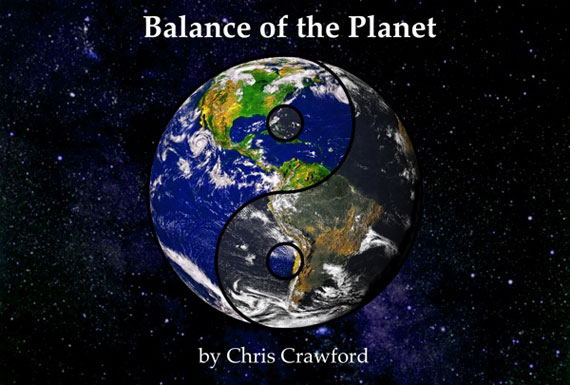
Be warned, this thing is nowhere near finished; it's not even alpha. There are still gobs of things that need to be built into it. But it is playable and you can get an idea of how it works and where it's going.
Strategies for dealing with climate change cannot be considered in isolation; it's a tarbaby that ultimately requires you to bring just about everything else into consideration: economic growth, population, food supplies, and so forth. It's impossible to exclude such factors from the simulation without in some way reducing its fidelity to reality.
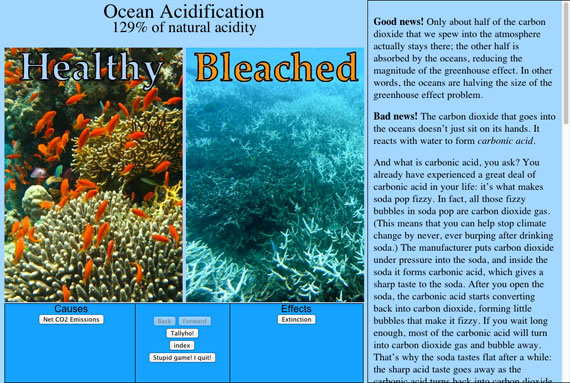
Building a simulation like this is tricky business; it's so easy to mislead the user by using biased numbers. Exactly what climate sensitivity should I use? How big should feedbacks be? The effects of permafrost melting could be stupendous, but how quickly with that develop? A simulation runs on numbers, and it's very difficult to maintain your intellectual integrity when dealing with numbers that aren't well known.
Particularly difficult was nuclear power. From a technical point of view, it's a hell of a lot better than coal or oil, but politically it's poison. There are lots of new technologies that could save our bacon -- but how can we evaluate new technologies when we have no safety record for them?
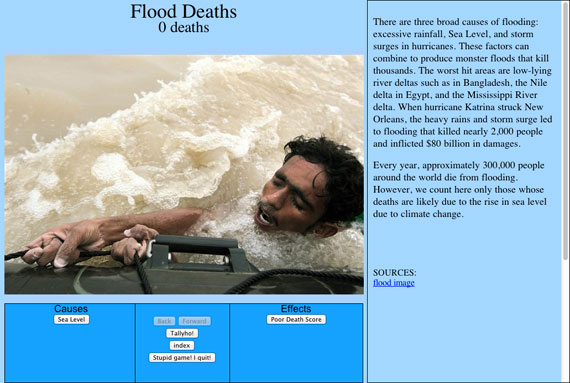
With all these problems, I first established reasonable upper and lower limits for each coefficient, then picked a number in between to use as the default. The cleverest stunt in the design is making these coefficients user-adjustable in the expert level of the game. If the user wants to increase or decrease climate sensitivity, permafrost melting rate, or nuclear power safety, they're welcome to, and they can see how things turn out with altered numbers.
Another killer problem was tuning the simulation. It has 80 internal variables and nearly 200 controlling coefficients. With such a complex simulation, there's a real danger of the system running wild under extreme inputs. If it's not carefully tuned, one player might be able to create a green utopia by developing natural gas to absurd levels, while another player could conceivably destroy humanity by pushing solar power too hard. Tuning such a system is like herding mathematical cats; all I can say is that it took a lot of work to get it as stable and responsive as it currently is.
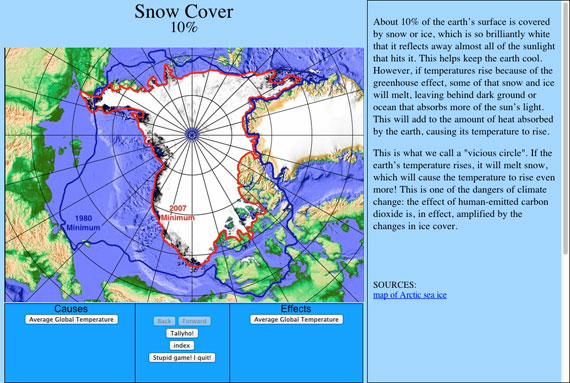
I originally intended to sell Balance of the Planet commercially, but recently I came up with the crazy idea of getting crowd-funding for it and giving it away. I have launched a Kickstarter project to accomplish this; so far, we haven't gotten enough money to pull it off. So I'm appealing to the readers to go look at the Kickstarter project at:
http://www.kickstarter.com/projects/544670315/balance-of-the-planet
and then contribute something to make this happen. Even more important, tell other people: tweet about it, mention it on Facebook, walk down Main Street with a sandwhich board -- anything that might get the word out. Making this thing available for free to the whole world would, I think, make a real contribution to educating the public about the deep doo-doo we've gotten ourselves into.
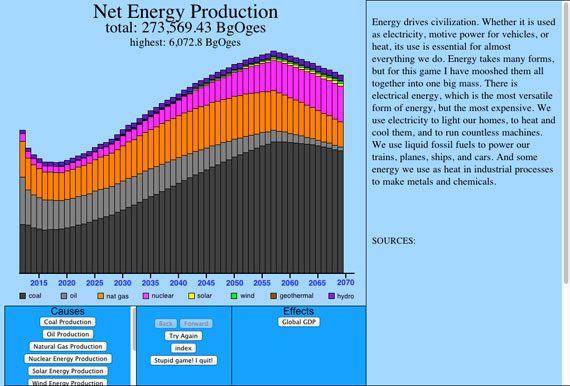































 Arguments
Arguments























 0
0  0
0






Comments